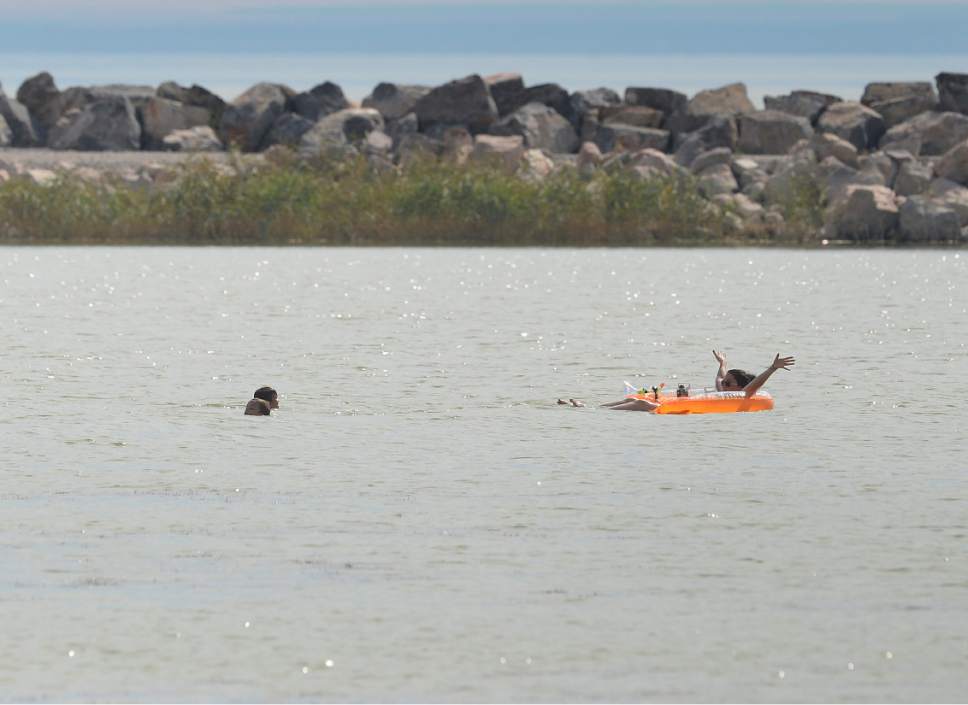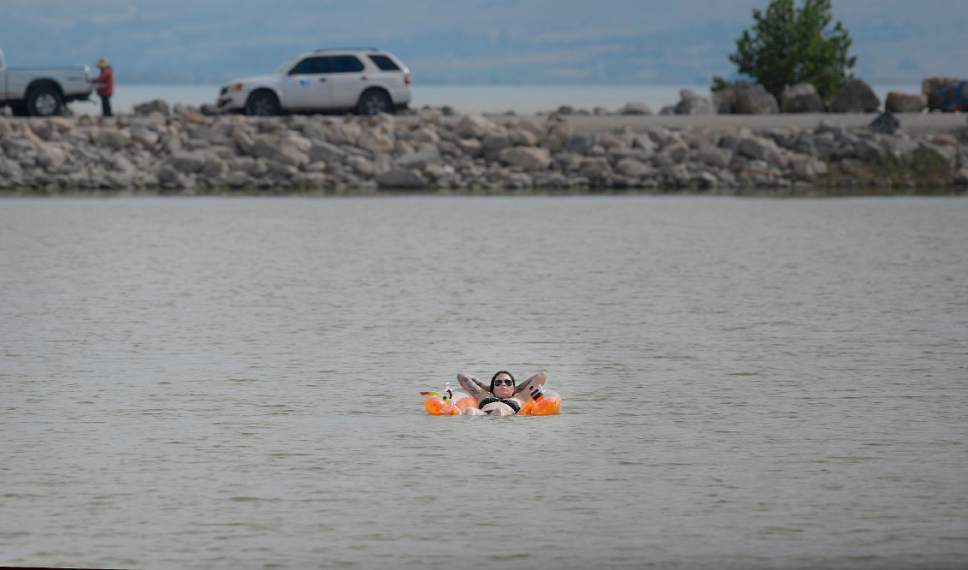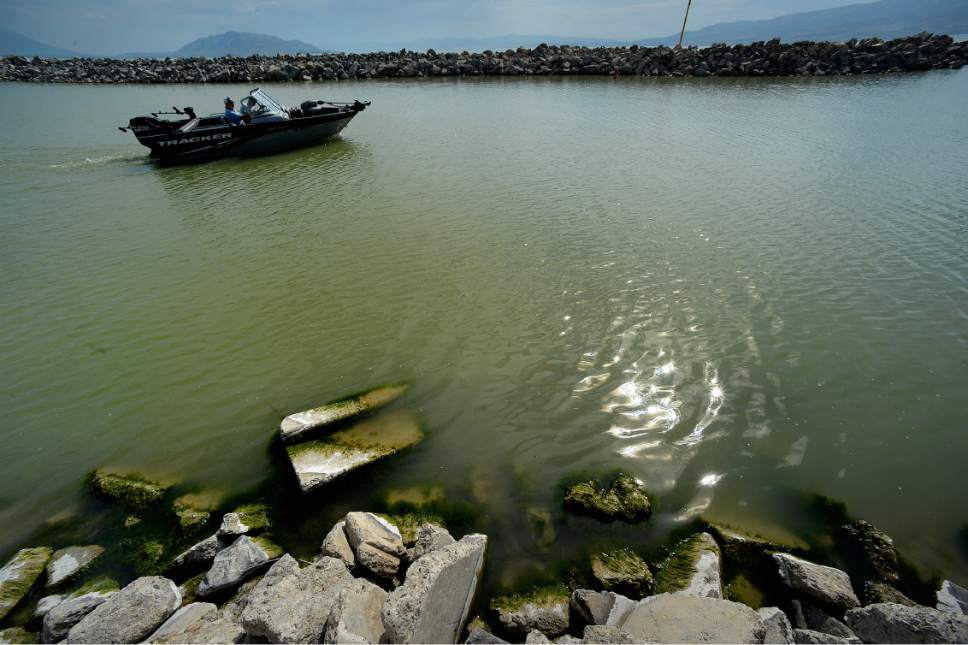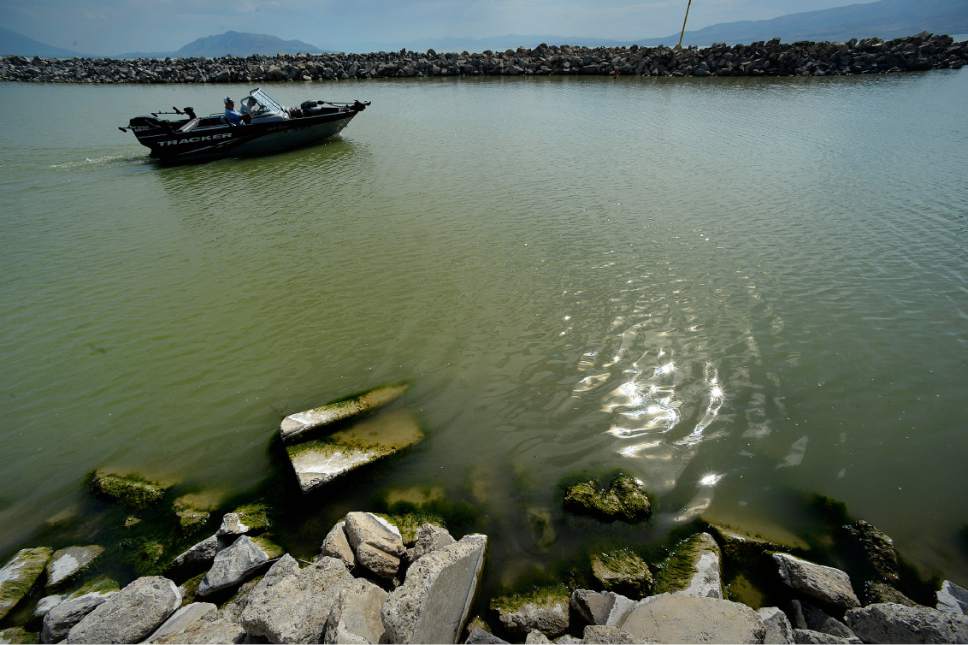This is an archived article that was published on sltrib.com in 2017, and information in the article may be outdated. It is provided only for personal research purposes and may not be reprinted.
Health officials continue to urge residents to stay out of the water at Utah Lake, even more so now that a second potentially harmful bacteria has entered the fray.
The Utah County Health Department posted warning signs at Sandy Beach on Friday afternoon, after the amount of E. coli collected in a routine water sample exceeded the threshold considered safe for recreation.
The entire lake is under a warning, due to a toxic algal bloom that developed there late last month.
Aislynn Tolman-Hill, a spokeswoman for the Utah County Health Department, said it was doubly important for residents to avoid contact with the water in that area because both contaminants pose health risks.
"Folks shouldn't be in the water for a number of reasons now in that area," she said. "One, the algal bloom, and now the levels of E. coli that we have tested there."
Tolman-Hill said residents should not swim, water-ski or engage in other activities that could cause them to come into contact with the water near Sandy Beach. Wading or otherwise playing in the water should also be avoided, she said, and pets should be kept away.
E. Coli is a pathogen that is generally associated with untreated fecal material. When ingested, some strains of the bacteria can cause diarrhea or urinary tract infections. In rare cases, infection with E. coli can be fatal.
Donna Spangler, a spokeswoman for the Utah Department of Environmental Quality, said the source of the E. coli at Sandy Beach was unknown, but it could be linked to a large population of birds that frequent the area.
Officials closed part of Utah Lake last summer after an algal bloom grew to contaminate much of the water.
Twitter: @EmaPen -
Poison control
O Residents who have visited Utah Lake or have potentially come into contact with the algal bloom and who are experiencing symptoms such as nausea, diarrhea, headache or rash are advised to call Utah Poison Control at 800-222-1222.
These symptoms can be associated with exposure to cyanobacteria toxins, some of which can be fatal.















